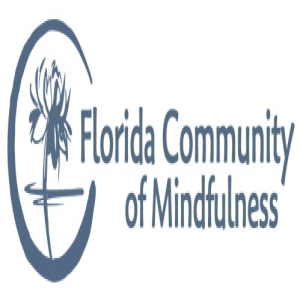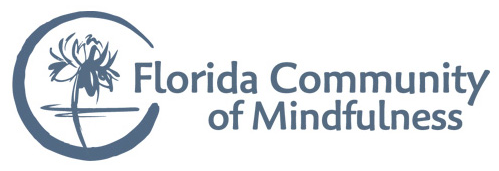Episodes

Thursday Feb 20, 2020
The Three Fierce Mantras (2019)
Thursday Feb 20, 2020
Thursday Feb 20, 2020
8-31-19 | Tampa
Our resistance to the unfolding of life, especially those situations unwanted or unexpected, is a primary cause of our emotional ups and downs. Our difficulty in accepting the experiences of life and the people in it for what they are and imposing our own needs and wants fuels an unending circus of negative emotions and conflictual mind states. Our desire to live peacefully in the present moment and practice mindful living becomes continually up-ended by our habitual dysfunctional responses.
In this day long retreat, Dharma teacher Fred Eppsteiner led retreatants in the study and practice of "The Three Fierce Mantras."

Thursday Feb 06, 2020
True Meaning of 'Present Moment Awareness' (2020)
Thursday Feb 06, 2020
Thursday Feb 06, 2020
January 18, 2020
In this talk from a Daylong Retreat, Dharma teacher Fred Eppsteiner explains how to truly live in the present moment. Fred shows us how we can develop two different, yet inextricably connected capacities of living in the present moment: (1) cultivating stillness and stability of mind that is capable of being present in calmness to whatever is manifesting in the moment; and (2) bringing forth the ability with mindfulness, courage, and compassion to ride the waves of emotionality or uncomfortable sensations, with greater presence, intelligence and ease.

Wednesday Feb 05, 2020
True Refuge (2020)
Wednesday Feb 05, 2020
Wednesday Feb 05, 2020
January 12, 2020
In this talk, Dharma teacher Fred Eppsteiner explains what it means to take refuge and asks the question, “where do we go for refuge?” Fred explains how we can go to refuge in the Buddha, Dharma, and Sangha so that we can relax and know we are no longer lost in this life.

Tuesday Feb 04, 2020
Beginning Anew (2020)
Tuesday Feb 04, 2020
Tuesday Feb 04, 2020
January 1, 2020
In the Buddhist tradition, the passing of an old year and the beginning of a new one is celebrated in a sacred manner.
During this talk, our teacher, Fred Eppsteiner, explains how we can acknowledge the passing of the year to facilitate a "letting go" of the past, to renew ourselves in the present, and to focus our intentions for the future.

Monday Feb 03, 2020
Practicing the Most Important Points of Dharm (2019)
Monday Feb 03, 2020
Monday Feb 03, 2020
November 10, 2019
In this Dharma talk to students of the Florida Community of Mindfulness, Dharma Teacher Fred Eppsteiner continues the series on the Lojong (Mind Trainings) teachings explaining how to train the mind to see clearly; seeing with the Wisdom of the Buddha utilizing slogan 51: "This time, practice the main points."

Saturday Jan 11, 2020
Mind Trainings Daylong Retreat Session #4 - Fred Eppsteiner
Saturday Jan 11, 2020
Saturday Jan 11, 2020
Daylong Retreat | November 23, 2019
In this Daylong Retreat, Dharma teacher Fred Eppsteiner and Ken Lenington comment on a number of the slogans offered in “The Seven Points of Mind Training,” a venerated text well known for its' pithy sayings that help us apply the full breadth of the Buddha’s Mahayana teachings to daily life. These slogans, or mind trainings, focus on how the Unconditioned Awakened Mind can beneficially manifest in the life of ordinary beings in order to give rise to loving-kindness, compassion, and understanding in all the activities of our lives. The transformation of seemingly adverse situations into the path of awakening is a unique focus of these mind trainings. Fred helps us understand how the teachings and practices presented in this text can be applied in our lives and how we can use whatever is occurring in our lives to fuel our transformation.

Saturday Jan 11, 2020
Mind Trainings Daylong Retreat Session #3 - Ken Lenington
Saturday Jan 11, 2020
Saturday Jan 11, 2020
Daylong Retreat | November 23, 2019
In this Daylong Retreat, Dharma teacher Fred Eppsteiner and Ken Lenington comment on a number of the slogans offered in “The Seven Points of Mind Training,” a venerated text well known for its' pithy sayings that help us apply the full breadth of the Buddha’s Mahayana teachings to daily life. These slogans, or mind trainings, focus on how the Unconditioned Awakened Mind can beneficially manifest in the life of ordinary beings in order to give rise to loving-kindness, compassion, and understanding in all the activities of our lives. The transformation of seemingly adverse situations into the path of awakening is a unique focus of these mind trainings. Fred helps us understand how the teachings and practices presented in this text can be applied in our lives and how we can use whatever is occurring in our lives to fuel our transformation.

Saturday Jan 11, 2020
Mind Trainings Daylong Retreat Session #2 - Ken Lenington
Saturday Jan 11, 2020
Saturday Jan 11, 2020
Daylong Retreat | November 23, 2019
In this Daylong Retreat, Dharma teacher Fred Eppsteiner and Ken Lenington comment on a number of the slogans offered in “The Seven Points of Mind Training,” a venerated text well known for its' pithy sayings that help us apply the full breadth of the Buddha’s Mahayana teachings to daily life. These slogans, or mind trainings, focus on how the Unconditioned Awakened Mind can beneficially manifest in the life of ordinary beings in order to give rise to loving-kindness, compassion, and understanding in all the activities of our lives. The transformation of seemingly adverse situations into the path of awakening is a unique focus of these mind trainings. Fred helps us understand how the teachings and practices presented in this text can be applied in our lives and how we can use whatever is occurring in our lives to fuel our transformation.

Saturday Jan 11, 2020
Mind Trainings Daylong Retreat Session #1 - Fred Eppsteiner
Saturday Jan 11, 2020
Saturday Jan 11, 2020
Daylong Retreat | November 23, 2019
In this Daylong Retreat, Dharma teacher Fred Eppsteiner and Ken Lenington comment on a number of the slogans offered in “The Seven Points of Mind Training,” a venerated text well known for its' pithy sayings that help us apply the full breadth of the Buddha’s Mahayana teachings to daily life. These slogans, or mind trainings, focus on how the Unconditioned Awakened Mind can beneficially manifest in the life of ordinary beings in order to give rise to loving-kindness, compassion, and understanding in all the activities of our lives. The transformation of seemingly adverse situations into the path of awakening is a unique focus of these mind trainings. Fred helps us understand how the teachings and practices presented in this text can be applied in our lives and how we can use whatever is occurring in our lives to fuel our transformation.

Saturday Jan 11, 2020
Mind Trainings Daylong Retreat Introduction - Fred Eppsteiner
Saturday Jan 11, 2020
Saturday Jan 11, 2020
Daylong Retreat | November 23, 2019
In this Daylong Retreat, Dharma teacher Fred Eppsteiner and Ken Lenington comment on a number of the slogans offered in “The Seven Points of Mind Training,” a venerated text well known for its' pithy sayings that help us apply the full breadth of the Buddha’s Mahayana teachings to daily life. These slogans, or mind trainings, focus on how the Unconditioned Awakened Mind can beneficially manifest in the life of ordinary beings in order to give rise to loving-kindness, compassion, and understanding in all the activities of our lives. The transformation of seemingly adverse situations into the path of awakening is a unique focus of these mind trainings. Fred helps us understand how the teachings and practices presented in this text can be applied in our lives and how we can use whatever is occurring in our lives to fuel our transformation.

